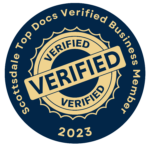Accelerated Resolution Therapy (ART)
ART therapy allows you to reprocess stuck memories and your reaction to them.
ART helps you keep the knowledge and lose the pain, so it’s a win-win treatment approach!
What is Accelerated Resolution Therapy?
ART is a form of psychotherapy that was developed using several different evidence based therapies including Gestalt, Cognitive Behavior, Guided Imagery, EMDR, and brief psycho-dynamic and exposure therapy. ART combines these different therapeutic approaches with eye movement.
ART, like EMDR, uses eye movements to facilitate visualization of memories/experience and the eye movements help to reduce distress from traumatic memories. ART focuses on negative images and their connection with emotional and physical reactions.
ART therapy process will help you retain the ability to recall the facts of the issue, problem or traumatic incident(s), but you will no longer experience the negative effects that brought you to therapy. This is why ART therapists say “ART helps you keep the knowledge and lose the pain.”
The ART process tends to result in a more rapid and complete recovery; this means most clients find some relief by the end of a treatment session.
Read here about how ART is different from EMDR therapy and which one may be best for you.
Accelerated Resolution Therapy (ART)
How Accelerated Resolution Therapy Can Help
ART therapy has been studied since 2008. These studies found that with ART individuals experiencing trauma related issues see a reduction in symptoms in 3-5 sessions. ART supports the treatment of:
PTSD & Combat PTSD | Depression & Anxiety | Phobias & Panic Attacks | Grief & Loss | Substance Abuse | Sleep issues | Abuse | & More!
Am I a good candidate for ART Therapy?
- Can you hold a thought?
- Can you move your eyes back and forth?
- Are you motivated to change?
Medical clearance is necessary for individuals with diagnosed eye disorders and history of seizures.
What to expect from your ART Therapy Sessions?
What ART is:
- Interactive
- Client-centered
- Brief (1-5 sessions) – Rapid Relief
- Client-led psychodynamic intervention
- Process oriented with goal to achieve resolution
- Directive (The therapist will guide you when you’re confused or stuck)
- Uses eye movements to change the way information is stored in the brain (memory reconsolidation)
Please know first and foremost, that you are always in control of what happens.
A typical ART session starts with the therapist asking you to do a full body scan. This allows us to establish a baseline for your current physical state. The ART process will then take you between focusing on the issue/challenge or problem you are seeking relief from and your current physical sensations.
You will be asked to visualize the issue, challenge, problem or trauma you are seeking relief from in its entirety, which will present itself in session – so individuals who might have difficulty recalling a memory prior to session or have blocked part of the memory, the process will still work.
Rapid eye movements are utilized at all stages of an ART session, not only to facilitate visualizing the event, but also to help with any strong emotional or physical sensations that occur during the process.
ART will have you focus on potentially difficult images even the images you have been trying to avoid. This is called memory recall and while difficult, these memories will be broken-up into segments that last about 30 seconds.
This process of memory recall will alternate with targeted sensation awareness. As the physical and emotional stressors emerge you will be helped with a desensitizing procedure to reduce the physical and emotional impact of the memories.
ART allows you to erase those stuck images, sensations and/or problems. Preparing you and your brain to replace them with solutions for their targeted images or memories. This use of voluntary image replacement is supported by research which shows that when trauma-related memories are merged with positive experiences, distressing memories become less intrusive.
The ART process slows your reactive stress response through body awareness and memory reprocessing – which makes it a truly amazing treatment.
We would love to see you reap the benefits of ART. Give us a call today!

If you’d like to learn more about ART, call MUV Counseling at 480-300-2635 for a free 15 minute consultation or email us with your questions. If you’re ready to get started, schedule online here.


